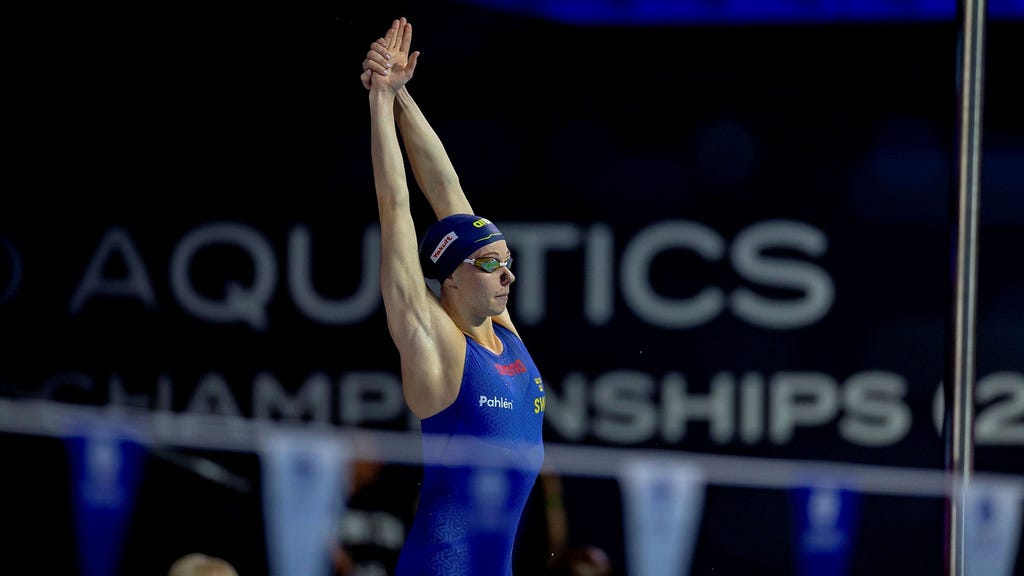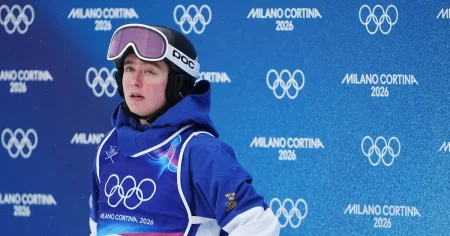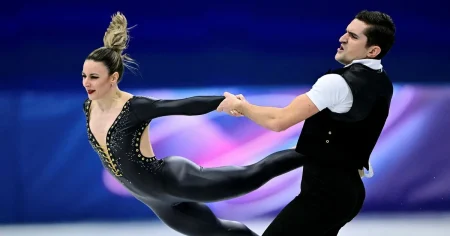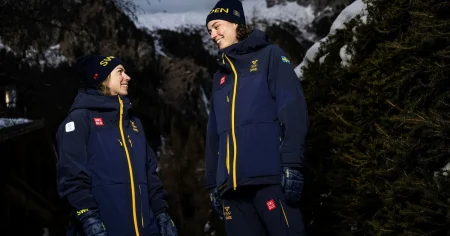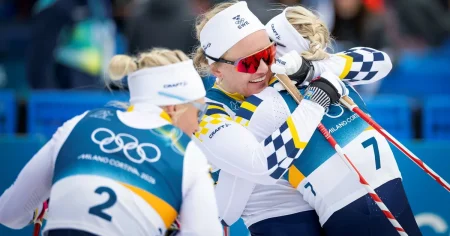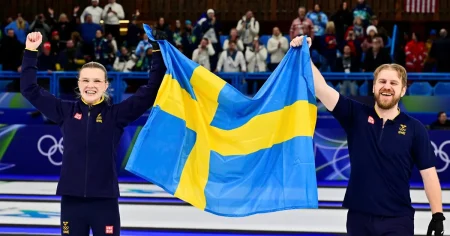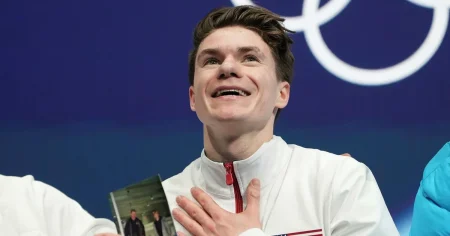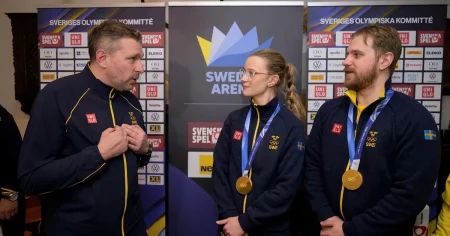Gretchen Walsh’s performance at the World Aquatics Championships in Budapest was nothing short of extraordinary, marked by record-breaking swims and a dominant display of speed and skill. The young American swimmer not only captured two gold medals and two silvers at the recent Paris Olympics, but she also shattered a long-standing world record in the 50-meter butterfly, clocking an astonishing 24.02 seconds, eclipsing Therese Alshammars’ 15-year-old record. This remarkable achievement set the tone for Walsh’s stunning performance throughout the championships, showcasing her exceptional talent and establishing her as a force to be reckoned with in the world of competitive swimming.
Walsh’s record-breaking spree didn’t end with the 50-meter butterfly. Later that same day, the 21-year-old phenom continued her remarkable run by setting another world record, this time in the 100-meter individual medley. Her time of 55.71 seconds solidified her position as a versatile and powerful swimmer, capable of excelling in multiple events. This impressive feat underscored her exceptional training, dedication, and natural ability to compete at the highest level. The double world record performance on a single day cemented Walsh’s status as a rising star in the sport and a dominant force in the pool.
Continuing her impressive form, Walsh carried her momentum into the 100-meter butterfly heats, where she once again showcased her exceptional speed and technique. She touched the wall with a world record time of 53.24 seconds, demonstrating her consistent ability to perform at her peak. This remarkable achievement further emphasized her dominance in the butterfly events and her overall versatility as a swimmer. Walsh’s relentless pursuit of excellence and her unwavering commitment to pushing the boundaries of the sport were on full display throughout the championships.
While Walsh’s achievements undoubtedly stole the headlines, other notable performances emerged from the championships as well. Sweden’s Louise Hansson secured a spot in the 100-meter butterfly semifinals with the third-fastest time of 55.86 seconds, showcasing her own considerable talent and competitive spirit. Hansson’s performance, while overshadowed by Walsh’s record-breaking swims, highlighted the depth of talent in the women’s butterfly events. Though not reaching the same record-shattering heights, Hansson’s result demonstrated the high caliber of competition at the championships.
Another Swedish swimmer, Sara Junevik, competed in the 100-meter butterfly heats but her time of 57.49 seconds was not enough to secure an automatic qualification for the semifinals. While missing out on direct advancement, Junevik remained in contention as a reserve, holding onto the possibility of competing in the later stages should another swimmer withdraw. Despite not achieving her immediate goal, Junevik’s participation in the championships provided valuable experience and showcased the growing presence of Swedish swimmers on the international stage. Her performance, while not resulting in a semi-final place, demonstrated her commitment to the sport and her ambition to compete amongst the world’s best.
In summary, the World Aquatics Championships in Budapest witnessed a stunning display of swimming prowess, particularly from Gretchen Walsh, whose record-breaking performances redefined the landscape of women’s butterfly swimming. Her remarkable achievements, coupled with the strong performances of other competitors like Louise Hansson, underscored the competitive nature of the championships and the ever-evolving standards of excellence in the world of swimming. Walsh’s dominance, combined with the efforts of other athletes striving for success, cemented the event as a memorable showcase of talent, dedication, and the pursuit of sporting greatness. The championships will be remembered for Walsh’s historic achievements and as a testament to the ongoing evolution and excitement of competitive swimming.





